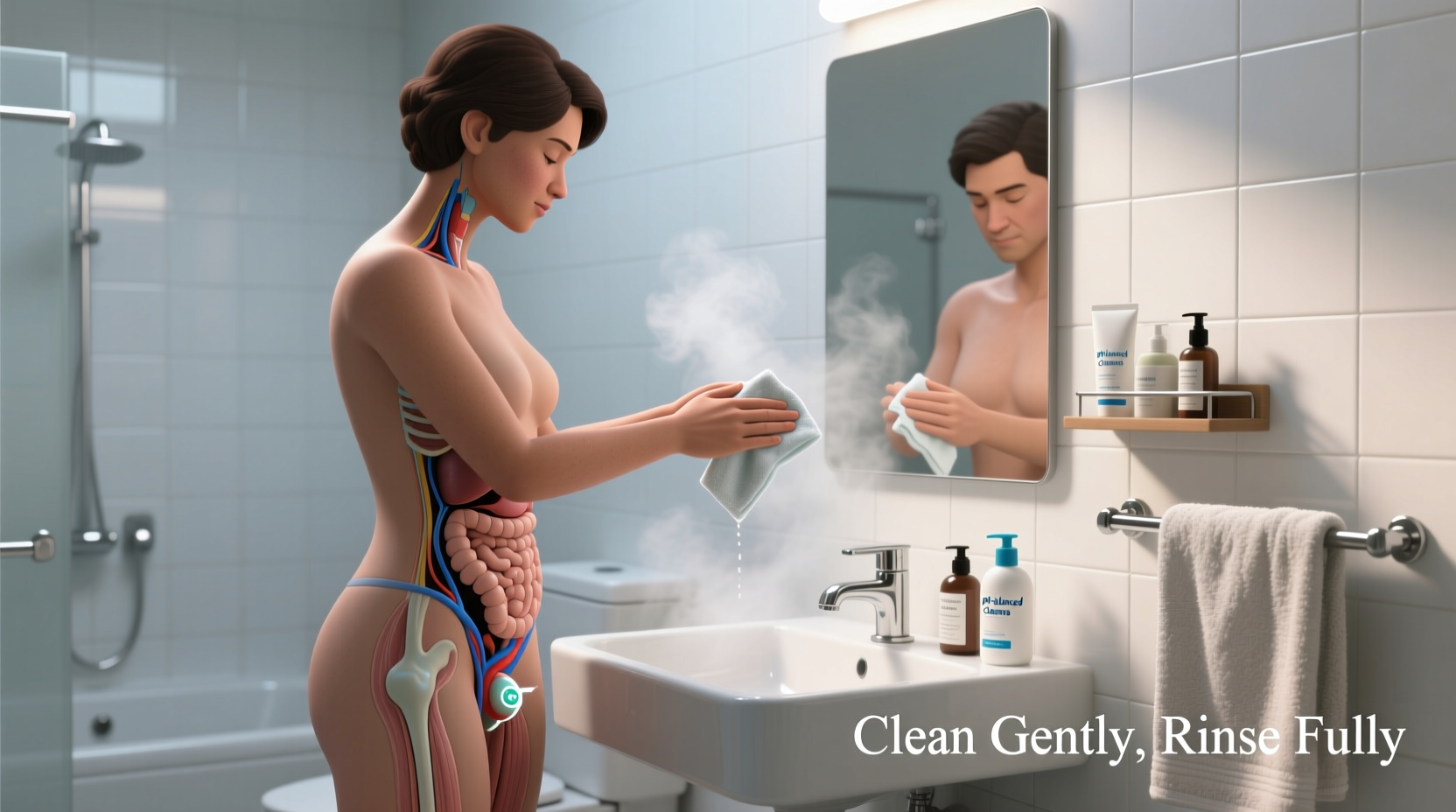Good intimate hygiene focuses on maintaining natural pH balance and healthy bacterial flora, not altering natural taste. Medical professionals emphasize that douching, harsh cleansers, and extreme dietary changes can disrupt your body's natural defenses, potentially causing infections. The American College of Obstetricians and Gynecologists (ACOG) states that the vagina is self-cleaning and requires only mild, unscented soap for the external area. Any significant changes in scent, discharge, or comfort warrant consultation with a healthcare provider rather than home remedies.
Understanding Your Body's Natural Balance
Many people misunderstand how the intimate area maintains its health. Your body has evolved sophisticated self-regulating systems that keep this area healthy through a delicate balance of beneficial bacteria and natural pH levels (typically 3.8-4.5). This environment protects against harmful bacteria and yeast overgrowth.
"The vagina is designed to be self-cleaning," explains Dr. Jen Gunter, an OB-GYN and author of The Vagina Bible. "External washing with water or mild soap is sufficient for the vulva, but internal cleaning methods like douching disrupt the natural ecosystem and increase infection risk."
| Normal Characteristics | Potential Concerns |
|---|---|
| Mild, non-offensive scent that may vary during menstrual cycle | Strong fishy odor (possible bacterial vaginosis) |
| Clear or white discharge that changes consistency | Thick white discharge with itching (possible yeast infection) |
| No discomfort or irritation | Burning, itching, or pain during urination |
| Slight scent variation after sexual activity | Persistent unpleasant odor despite hygiene |
Source: Centers for Disease Control and Prevention (CDC) - STD Statistics
Evidence-Based Hygiene Practices
Your daily routine significantly impacts intimate health. Follow these medically supported practices:
- Wash externally only with lukewarm water and mild, unscented soap
- Avoid douching completely - it increases bacterial vaginosis risk by 73% according to ACOG
- Wipe front to back after using the restroom to prevent bacterial transfer
- Choose breathable cotton underwear and change daily
- Avoid tight synthetic fabrics that trap moisture and heat
The historical evolution of intimate hygiene reveals dangerous misconceptions. In the early 20th century, Lysol was marketed as a feminine hygiene product despite containing toxic chemicals. Modern research shows such practices disrupt the natural microbiome. Today's medical consensus, established through decades of clinical research, confirms that less intervention leads to better health outcomes.

Diet and Lifestyle Factors
While your diet affects your overall health, its impact on intimate scent is often overstated. However, certain dietary choices support general wellness:
- Stay hydrated - water helps maintain healthy mucous membranes
- Eat probiotic-rich foods like yogurt with live cultures to support beneficial bacteria
- Limit excessive sugar which can contribute to yeast overgrowth
- Avoid tobacco products which affect circulation and tissue health
Be cautious of viral claims about specific foods dramatically altering natural scent. The American Society for Nutrition states that no food significantly changes vaginal chemistry in healthy individuals. Extreme dietary changes often do more harm than good.
When to Consult a Healthcare Provider
Understanding normal versus concerning symptoms prevents unnecessary worry while ensuring timely care:
- Seek medical advice if you experience persistent unusual discharge
- Consult a provider for burning, itching, or pain that doesn't resolve
- See a professional if you notice sudden, strong odor changes
- Get checked if over-the-counter treatments don't resolve symptoms
The American College of Obstetricians and Gynecologists recommends regular well-woman visits regardless of symptoms. These appointments provide opportunities to discuss concerns openly with a medical professional who can offer personalized guidance based on your health history.
Debunking Common Myths
Misinformation about intimate care persists despite medical evidence. Let's clarify:
- Myth: Douching cleans the vagina
- Fact: Douching disrupts natural bacteria balance and increases infection risk by 73% (ACOG)
- Myth: Special feminine hygiene products are necessary
- Fact: The FDA warns that many "feminine hygiene" products contain unnecessary and potentially harmful ingredients
- Myth: Natural scent indicates poor hygiene
- Fact: Every body has a natural scent that varies throughout the menstrual cycle
Remember that intimate health varies significantly between individuals. What's normal for one person might differ for another. Focus on maintaining overall health rather than achieving an unrealistic standard.
Building Healthy Habits
Develop sustainable routines that support long-term health:
- Create a simple morning and evening hygiene routine
- Choose products with minimal ingredients you can pronounce
- Track your menstrual cycle to understand normal variations
- Wear comfortable clothing that allows air circulation
- Practice stress management techniques as stress affects overall health
Consistency matters more than extreme measures. Small, sustainable changes create better long-term outcomes than drastic interventions that often backfire. Your healthcare provider remains your best resource for personalized advice based on your specific health needs.
Is it normal to have a scent in the intimate area?
Yes, a mild, non-offensive scent is completely normal and varies throughout your menstrual cycle. Significant changes or strong odors may indicate an imbalance requiring medical attention.
Can diet significantly change natural intimate scent?
While extreme dietary changes might have minor temporary effects, no specific food dramatically alters natural vaginal chemistry in healthy individuals. Focus on balanced nutrition for overall health rather than targeting intimate scent.
What should I use to clean the intimate area?
Use only lukewarm water and mild, unscented soap for the external area (vulva). Avoid internal cleaning methods. The vagina is self-cleaning and requires no special products beyond what you'd use for other external skin areas.
When should I see a doctor about intimate health concerns?
Consult a healthcare provider if you experience persistent unusual discharge, burning, itching, pain during urination, or sudden strong odor changes. Regular well-woman visits provide opportunities to discuss concerns proactively.











 浙公网安备
33010002000092号
浙公网安备
33010002000092号 浙B2-20120091-4
浙B2-20120091-4